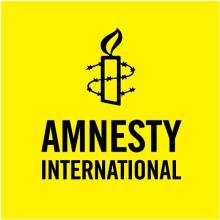Resource information
Will an oil pipeline investment agreement between the governments of Chad and Cameroon and a consortium led by ExxonMobil, including Chevron and Petronas pose a serious threat to human rights in Chad and Cameroon? A report by Amnesty International examines possible roots of human rights abuses that might occur in the context of this foreign direct investment.The report argues that certain aspects of the agreement, primarily due to a lack of clarity, may signal a disregard for the international framework set up to protect human rights and could:hold back the governments of Chad and Cameroon, which have poor track records on human rights, from taking steps to improve the human rights protection of those affected by the pipeline projectmake it more difficult to hold the consortium to account for abuses of human rights that result from its activitiesencourage the governments of Chad and Cameroon to ignore their human rights obligations, by claiming that the agreements prevent them from taking measures that would destabilise the financial equilibrium of the project, even if such measures are intended to respect, protect and fulfil human rightsbe interpreted to allow the oil companies to extract and transport oil and operate the pipeline project free from full accountability under domestic laws against human rights abuses.The report calls on governments, international financial institutions and companies involved in the Chad-Cameroon pipeline project to revise the project agreements to include an explicit guarantee that nothing in the agreements can be used to undermine either the human rights obligations of the states or the human rights responsibilities of the companies. In particular Amnesty International is urging that the investment agreements:allow the regulation of actions of the companies involved, to ensure that they do not abuse human rightsremove obstacles to progressive realisation of human rightsavoid placing a price tag on human rightsgive precedence to international human rights law over industry standardsrespect the right to an effective remedyensure the right to equalityprotect labour rights and the rights to freedom of expression and assembly.



